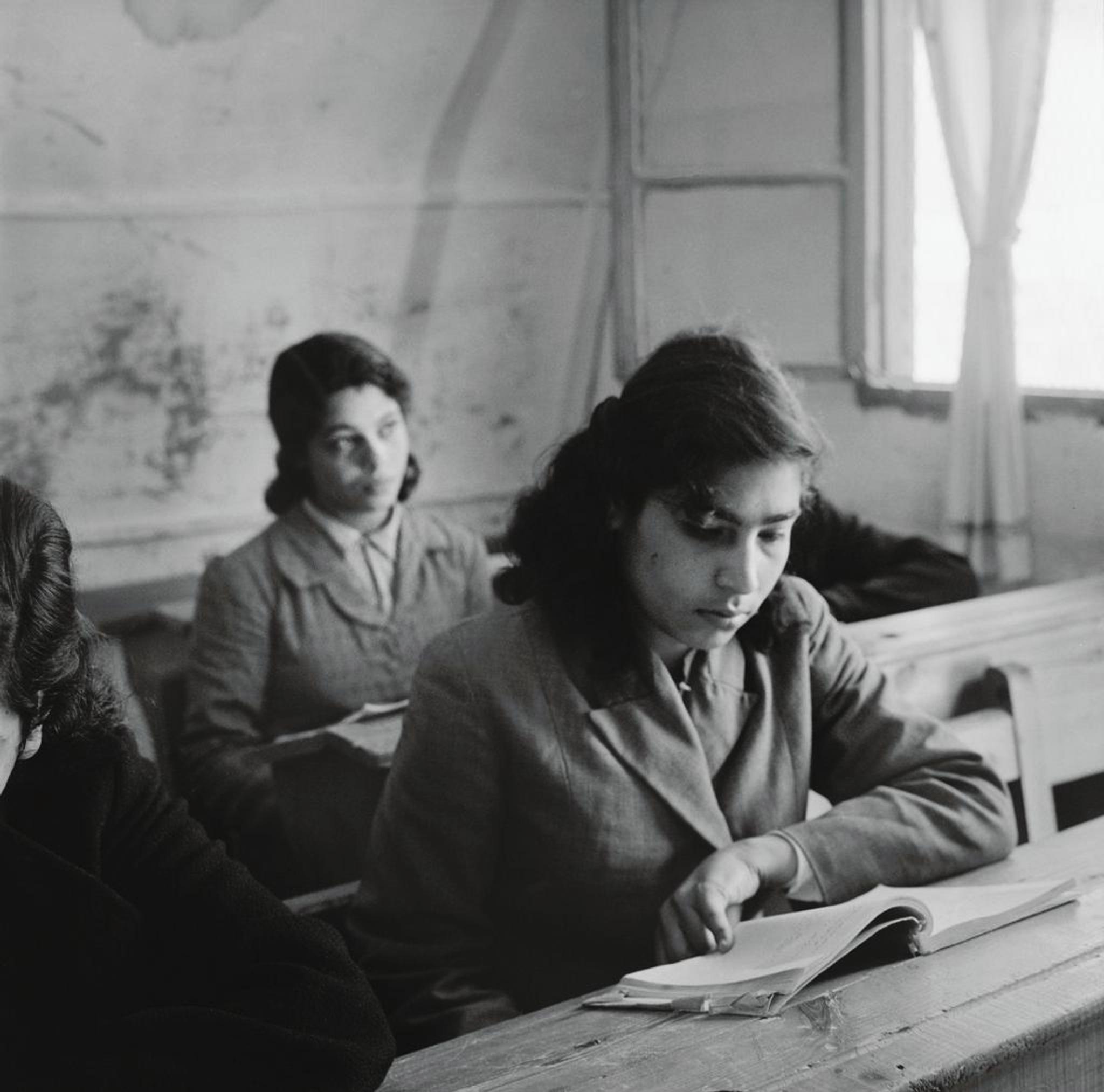
Returning to Jasmine
A photographer came into our class today. It had been raining since midnight and when he came in around noon, he was already dripping with water, smiling. I wondered; how could someone smile so jovially in this cold weather? How could he hold his camera the way a newborn is held as he tried to tell us, in hand gestures, about his country? He didn’t seem to be bothered by the dreary tapping of the rain against the plastic tent that is our classroom.
I yelled at my mother last night. She had urged me to look my best for the photographs. I asked her what for? Who wants to see a group of refugee girls learn to make ruffled collars? Her jaw clenched, and her fist, and she told me, angrily, that all of this is temporary; that we will be back in Nablus soon. When I yelled at her that this isn’t temporary, that we will remain here, she cast me a pained look and went outside for a smoke. I couldn’t sleep until around two hours before I had to get up again for ‘school’ - my feet blue from the cold.
In class, I stare through the makeshift window unseeingly and try to summon the sweet scent of the jasmine trees that had embraced our stone home in Nablus. I try to recall the way they cascaded down the low walls, the petals trembling slightly with the breeze. I remember how I would pluck some and plant them in my hair, telling Ismael that I was a fairy; how he would taunt me and try, jokingly, to pluck them from my hair. With a burn in my throat, I remember how I would push Ismael when he tried to do that and how Ismael is no longer with me; with any of us.
I turn my head and fixate my gaze on the jolly photographer, hopping gracefully between our desks, sending us genuine smiles. For some reason, he reminds me of uncle Aziz, who with cheeks flushed from the wine, would tell me stories about how he and my father would steal chickens from the neighboring house and get caught every time. “It’s because of your nervous chuckling that we always got caught” my father would yell from across the room, as he was trying to fix his hopeless record player.
The photographer kindly asks if he can take a portrait of me. I tell him no. I do not tell him that I do not want to be seen like this, in this horrid camp that we are expected to call home. I do not tell him that if you can’t bring back Ismael or fix my mother’s heart or take me back to our home backyard then you cannot take a portrait of me.
The days pass like bricks falling from a height: swiftly and with a mundane clamor that no one seems to pay attention to. I come here to make dresses with other young girls coming from all over Palestine. Our teacher, who still dresses elegantly despite the mud that overflows in those tents, tells us that we need to gain those skills for later. When one of the girls asked her what happens later? The teacher paused lingeringly and did not reply. After a long, heavy silence, she suddenly grabbed a pink silky fabric and said “the magic is in the ruffled collar. It will transform the woman who wears it into a proper fairy from a Palestinian folktale. We must learn how to master it!”.
Upon arriving ‘home’, I went straight to my mother and hugged her. She kissed my head and asked me to get ready for dinner. At night, as I was about to get into bed, I noticed a small envelope on my pillow. I opened it to find a piece of paper with amateur handwriting that read “Amal, this is Ismael. I came by our backyard today and didn’t find you. I miss playing together. I have seen you in my dream. You were dancing in a silky ruffled dress with everyone, jasmine petals falling from your hair. You cried from happiness in my dream, telling me “Look at us all here. How happy and alive and finally together”.
They told me you will be joining me soon. I will wait for you.